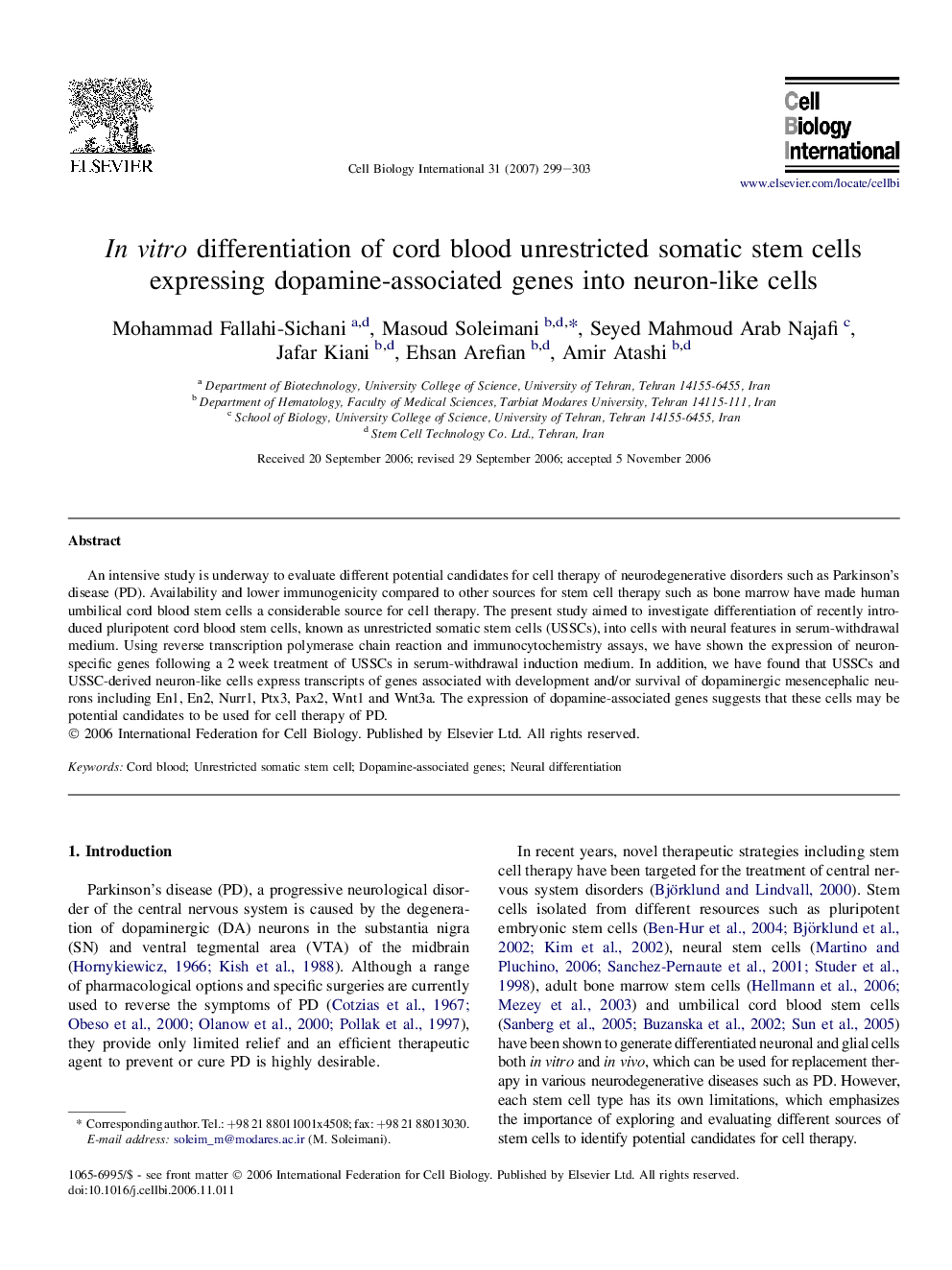| Article ID | Journal | Published Year | Pages | File Type |
|---|---|---|---|---|
| 2067813 | Cell Biology International | 2007 | 5 Pages |
Abstract
An intensive study is underway to evaluate different potential candidates for cell therapy of neurodegenerative disorders such as Parkinson's disease (PD). Availability and lower immunogenicity compared to other sources for stem cell therapy such as bone marrow have made human umbilical cord blood stem cells a considerable source for cell therapy. The present study aimed to investigate differentiation of recently introduced pluripotent cord blood stem cells, known as unrestricted somatic stem cells (USSCs), into cells with neural features in serum-withdrawal medium. Using reverse transcription polymerase chain reaction and immunocytochemistry assays, we have shown the expression of neuron-specific genes following a 2Â week treatment of USSCs in serum-withdrawal induction medium. In addition, we have found that USSCs and USSC-derived neuron-like cells express transcripts of genes associated with development and/or survival of dopaminergic mesencephalic neurons including En1, En2, Nurr1, Ptx3, Pax2, Wnt1 and Wnt3a. The expression of dopamine-associated genes suggests that these cells may be potential candidates to be used for cell therapy of PD.
Keywords
Related Topics
Life Sciences
Biochemistry, Genetics and Molecular Biology
Biophysics
Authors
Mohammad Fallahi-Sichani, Masoud Soleimani, Seyed Mahmoud Arab Najafi, Jafar Kiani, Ehsan Arefian, Amir Atashi,
